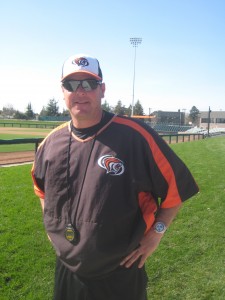The Texas Rangers were one strike away from their first World Series championship ever in the 9th inning, but the Cardinals came back to tie the score. The same thing happened in the 10th. And then in the 11th inning, another miracle for St. Louis: Walk Off Homer
David Freese went from goat to hero in one game, after dropping an infield fly, then hitting a game tying triple in the 9th and finally the game winning home run in the 11th. I’ve been rooting for Texas to win their first World Series championship ever, but now it appears the baseball gods are shining on Busch Stadium to anoint the Cardinals as the team of destiny.
What’s it like to hit a game-winning home run in a World Series? For my book Baseball Between Us, I interviewed Ed Sprague, a hero of the 1992 World Series.
As a member of the Toronto Blue Jays, Ed Sprague Jr. hit a game-winning home run in Game Two of the 1992 World Series against Jeff Riordan, one of the top relievers at that time. Ed’s homer made the difference in launching the Jays to their firstWorld Championship ever, in a win over the Atlanta Braves.
In 2010, I chatted with Ed in Stockton, California, where he’s now the head baseball coach for the University of the Pacific Tigers. While on campus, I asked him about the pressure of pinch-hitting against Riordan in a pivotal game.
“Well, I had pinch hit in the playoffs a little bit,” Sprague told me. “I got an opportunity. I was actually in the dugout and happened to have my bat in my hand, in Game One inthe American League Championship Series against the A’s, and they were beating us pretty good. And Cito [manager Cito Gaston] actually came in. Cito looked out and saw I had my bat and said I’d pinch hit for Manny Lee or somebody. I got a base hit in that game,” Sprague explained.
“So I think he thought maybe this kid can pinch hit. I got an opportunity to pinch hit in Oakland against Eckersly and he punched me out. But we rallied and Alomar hit the big home run that sent us on. That was kind of my role in Game Two. He gave me plenty of warning, I was going to hit for Duane Ward in the bottom of the inning, so I went back and got loose.”
Sprague sought advice from Blue Jays Designated Hitter Rance Mulliniks, asking what approach he should take at the plate.
Mulliniks told him, “Ed, he’s a high fastball pitcher; he’s going to try to get you to elevate the fastball. Just make sure he gets it down.”
Sprague was thinking about taking the first pitch from Riordan, but he decided instead to be aggressive at the plate.
“Most of the time you want to come off the bench and come up swinging,” he explained. “So that was it.”
“And it was on the first pitch that you hit it out? “ I asked.
“First pitch fastball, yup,” Sprague confirmed.
“And he got it right in your power zone?”
“Exactly.”
“What was it like when you saw that ball go over the fence for a two-run homer that turned out to be the game-winning hit?”
“Well, I was excited, obviously,” the World Series hero said.
“I think probably the most exciting thing was looking in our dugout as I was rounding the bases and seeing everybody jump up and down…This is, essentially, you know, my second year, but I was still in my rookie campaign. I had a partial year in ’91 and a partial year in ’92 and so when you get back to the bench and Dave Winfield’s giving you a big chest bump and everything else, it was pretty special.”
Throughout his baseball career, Ed Sprague Jr. made a mark of winning big games, including back-to-back college World Series championships for the Stanford Cardinal in 1987 and 1988—the same year he won an Olympic Gold Medal with theU.S. Men’s baseball team. Sprague would later go on to win back-to-back World Series titles with the Toronto Blue Jays, making him the only player ever to earn consecutive championships in both college and Major League Baseball on top of earning an Olympic Gold Medal.

